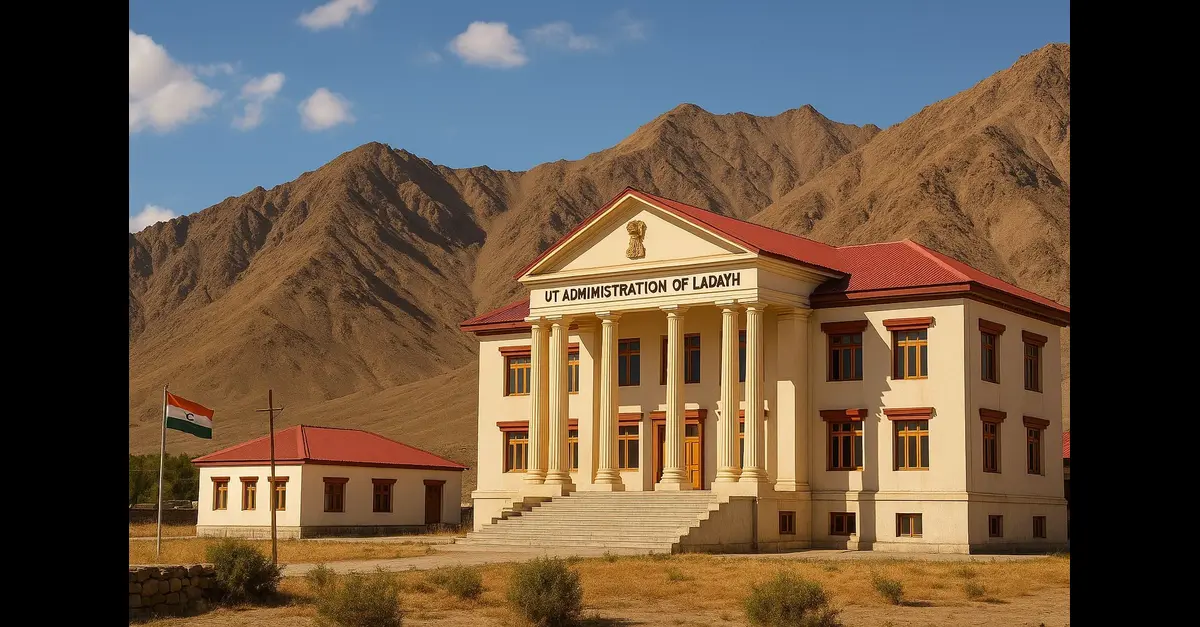INTRODUCTION
On June 2, 2025 Indian President Droupadi Murmu promulgated a historic ordinance for the amendment in the Jammu & Kashmir Reservation Act, 2004, but made applicable within the Union Territory (UT) of Ladakh. This legal move, known as the Union Territory of Ladakh Reservation (Amendment) Regulation, 2025, sets an unprecedented 85% reservation cap for Scheduled Castes (SC), Scheduled Tribes (ST), Other Backward Classes (OBC), and other socially and educationally backward groups in government jobs and admissions to professional institutions in Ladakh, with the 10% quota for Economically Weaker Sections (EWS) being treated separately. The ordinance is one of several regulations designed to fend off a decades-long push for job protections, cultural preservation and administrative certainty in the region.
BACKGROUND
Ladakh’s political and legal status has been highly contested since the abrogation of Article 370 and the reorganisation of the then state of Jammu & Kashmir into two Union Territories (UTs)– Jammu & Kashmir (with a legislature) and Ladakh (without a legislature)– in 2019.Although initially, some welcomed the partition of Ladakh, later, there were fears among the locals of the lack of constitutional safeguards over their special tribal identity, fragile ecology, and restricted economic base. No legislative arrangement and specific legal protections also led to fears of demographic engineering and discrimination. In response, civil society groups such as the Leh Apex Body (LAB) and Kargil Democratic Alliance (KDA) began demanding that Ladakh be brought under the 6TH Schedule of the Constitution of India that extends greater autonomy and safeguards to the tribal majority areas. The movement went national in 2024–2025, i.e., with the hunger strike initiated by climate activist Sonam Wangchuk, demanding legal action in favour of Ladakh’s interests.
KEY POINTS
Reservation Cap: The ordinance amends Section 3(1) of the Jammu & Kashmir Reservation Act, 2004, to state that the total percentage of reservation in Ladakh “shall in no case exceed 85%, excluding reservation for Economically Weaker Sections”. This is a significant increase from the previous 50% cap for SC, ST, and OBC categories.
The EWS Quota: The 10% EWS reservation is outside the cap of 85%, thereby 95% seats can be reserved if EWS is taken into account.
Applicability: These Rules shall apply* to direct recruitment to posts & appointments on promotion in the government service and admission to professional educational institutions in Ladakh.
Domicile Condition: In addition to the reservation ordinance, domicile-based system of recruitment for Government introduced through new rules. So, a domicile is one who has spent 15 years in Ladakh, studied for seven years in Ladakh and passed classes 10 or 12 exams and/or is a child/spouse of a domicile/a central government employee who served for 10 years in Ladakh).
Language and Women’s Representation: Additional regulations recognize local languages (English, Hindi, Urdu, Bhoti, and Purgi as official; institutional support for Shina, Brokskat, Balti, and Ladakhi) and reserve one-third of seats for women in the Ladakh Autonomous Hill Development Councils (LAHDC) of Leh and Kargil.
RECENT DEVELOPMENTS
The gazette of the Union Territory of Ladakh Reservation (Amendment) Regulation, 2025 is the first exhaustive legal framework made for Ladakh after the erstwhile state of J&K ceased to exist. The ordinance, promulgated under Article 240 of the Constitution and the Jammu and Kashmir Reorganisation Act, 2019, is an expression of the Centre’s effort to try to meet Ladakh’s special demographic and socio-economic requirements through executive order instead of constitutional changes.
The new regulations were notified on June 2 and 3, 2025 and extend to all government jobs and professional institutions in Ladakh. They are accompanied by procedural clarity on the issuance of domicile certificates and recognition of local languages, as well as enhanced representation for women in local governance.
These have come after years of struggles and compromises with the state that aim to balance regional aspirations of security and larger national policies of reservation and positive action. Although the regulations draw Ladakh closer to the rights of Jammu & Kashmir after August 5, 2019 (like domicile-based job reservations), the region still does not have legislative assembly and legal land protection, which are among the key demands in Ladakh.
CONCLUSION
The President’s ordinance to modify the Jammu & Kashmir Reservation Act to include Ladakh is a significant legal measure towards the realization of the aspirations of the region for job security, cultural protection, and administrative certainty. By capping reservations at 85% (excluding EWS), introducing domicile-based recruitment, and recognizing local languages, the Centre has taken a decisive step toward region-specific governance for Ladakh.
However, the new regulations also highlight the limitations of executive action in the absence of constitutional guarantees such as Sixth Schedule status or a legislative assembly. Even as the ordinance resolves the immediate issues of employment and representation, longer-term issues of land rights, legislative control, and conservation go unaddressed. The legal imperative to Ladakh is thus a step in the right direction as much as it is a continuing challenge to reconcile local aspirations with national policy intentions.
“PRIME LEGAL is a full-service law firm that has won a National Award and has more than 20 years of experience in an array of sectors and practice areas. Prime legal falls into the category of best law firm, best lawyer, best family lawyer, best divorce lawyer, best divorce law firm, best criminal lawyer, best criminal law firm, best consumer lawyer, best civil lawyer.”
WRITTEN BY HARINI S


